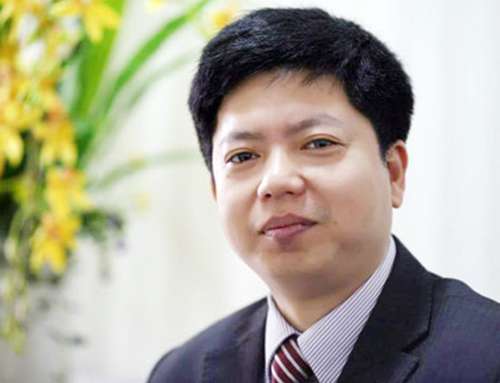.jfif) Opinion
Opinion


|
| Nguyễn Trọng Khoa. —Photo vnexpress.net |
Dr Nguyễn Trọng Khoa, deputy head of the Department of Medical Examination and Treatment under the Ministry of Health talks to Người Đưa Tin (The Herald) newspaper about blood donations and allegations people are waiting outside hospitals offering to sell their own blood.
How do you respond to claims there is currently a large shortage of blood in the hospitals?
According to the National Steering Committee for Humanitarian Blood Donation, in 2017 Việt Nam received almost 1.5 million blood units, of which 97.7 per cent came from volunteer blood donors.
The Committee has launched many blood donation campaigns asking people to help save lives. These campaigns have enjoyed support from people from all walks of life. Blood donation centres have been established in many localities. As a result, in many operations, the hospitals don’t have to ask relatives to donate blood.
I want to confirm the blood which is used for the patients is taken from healthy people. However, in certain periods of the year, particularly during the Lunar New Year festival or during the summer when students are on holidays, most Vietnamese hospitals go short if many patients need blood transfusions, particularly blood group O.
However, with strong support from the general public, the shortage of blood only happens three weeks before and after Tết (the Vietnamese Lunar New Year Festival) and three weeks in July and August when the students are on vacation. As a result the hospitals have to ask the patients’ relatives to donate blood. In certain cases, medical workers have also been asked to donate their blood.
Is there any official document saying that the patients’ close relatives have to donate blood if there is a shortage?
Blood donation is voluntary. Under Vietnamese law, hospitals don’t have the responsibility to receive blood donations. It’s the blood centre's responsibility to secure steady blood supply for all hospitals. However, in life-threatening situations and the hospital doesn’t have the type of blood, the hospital could ask the patient’s relatives to help.
How do you respond to allegations people are waiting outside hospitals trying to sell their own blood?
Article 67 in the Circular on providing guidance on blood transfusions states clearly the director of the healthcare facility is responsible for ensuring the safety of blood transfusions and efficiency in operation of the blood transfusion facility.
When detecting people hanging at the hospital gate selling blood, the hospital should inform the local functional agency and co-operate with it to handle the case immediately.
Did you take any action to stop these illegal activities?
The Department of Medical Examination and Treatment has worked closely with all members of the National Steering Committee for Humanitarian Blood Donation to encourage all people to donate blood to save lives. And we vow to punish anyone caught. — VNS




